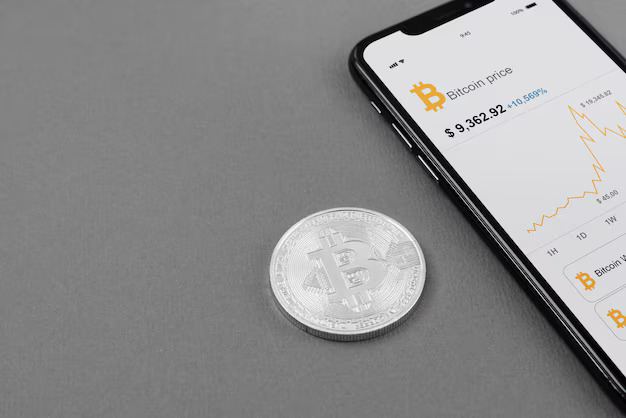How Many Confirmations Are Needed to Confirm a Bitcoin Transaction?
In the world of cryptocurrencies, Bitcoin is undoubtedly the most well-known and widely used digital currency. It has revolutionized the way we perceive and transact value online, providing a decentralized, secure, and transparent means of exchange. However, one question that many Bitcoin users often ask is: how many confirmations are needed for a Bitcoin transaction to be considered fully settled?
When a Bitcoin transaction is made, it needs to be confirmed by the network of miners before it can be considered finalized. Each confirmation represents a block being added to the blockchain, which is the public ledger of all Bitcoin transactions. The more confirmations a transaction has, the more secure and irreversible it becomes.
Typically, it is recommended to wait for six confirmations for a Bitcoin transaction to be considered fully settled. This number is often chosen because it is highly unlikely for a malicious person or group to have control over more than 50% of the mining power in the Bitcoin network, making it virtually impossible to reverse a transaction after six confirmations.
It is important to note that the time it takes for a Bitcoin transaction to receive the required number of confirmations can vary. In general, the network aims to process and confirm transactions as quickly as possible, but factors such as network congestion and transaction fees can influence the time it takes for confirmations to occur. Once a transaction reaches the desired number of confirmations, it is considered fully settled and cannot be reversed without the consensus of the network.
What are confirmations for bitcoin transactions?
Confirmations are a crucial aspect of the Bitcoin network that provide security and validity to transactions. Each confirmation represents a block being added to the blockchain, which is the public ledger of all Bitcoin transactions. When a transaction is made, it is initially considered as unconfirmed.
Bitcoin miners verify and validate transactions by including them in blocks and solving complex mathematical puzzles to secure the network. Miners compete to add the next block to the blockchain, and once a block is successfully mined, the transactions within it receive their first confirmation.
With each subsequent block that is added to the blockchain, the likelihood of a transaction being irreversible increases. Each additional block in the blockchain serves as an additional confirmation, hence the term “confirmations.”
Typically, it is considered safe to accept a Bitcoin transaction as finalized after it has received six confirmations. This is because six confirmations make it extremely difficult for an attacker to reverse the transaction. The more confirmations a transaction has, the more secure it becomes.
It is important to note that the number of confirmations required for a transaction to be considered secure may vary depending on the context. Some exchanges and merchants may require a higher number of confirmations before considering a transaction as final.
Importance of confirmations for bitcoin transactions
When it comes to bitcoin transactions, confirmations play a crucial role in ensuring the validity and security of the network. Confirmations refer to the process of validating and adding a new transaction to the blockchain, the decentralized ledger that records all bitcoin transactions.
The confirmation process
When a bitcoin transaction is initiated, it is sent to the network of nodes, also known as miners, for verification. These miners compete to solve complex mathematical problems in order to add the transaction to a block. Once a miner successfully solves the problem, the block is added to the blockchain and the transaction is considered confirmed.
However, a transaction is not considered secure until it has been included in multiple blocks. Each additional block that includes the transaction adds another confirmation to its validity. The number of confirmations required for a transaction to be considered fully secure depends on the level of security required by the recipient.
Importance of confirmations
Confirmations are important for several reasons:
- Security: Confirmations provide security by ensuring that a transaction cannot be easily reversed or double spent. As more confirmations are added, the probability of a transaction being reversed decreases significantly.
- Finality: Confirmations provide finality to a transaction. Once a transaction has been confirmed, it becomes a permanent and immutable part of the blockchain. This means that the transaction cannot be altered or removed, providing a reliable record of the transaction.
- Protection against double spending: Confirmations protect against double spending, which is a fraudulent practice where a user spends the same bitcoins twice. As more confirmations are added, the likelihood of a successful double spend attack decreases.
- Trust: Confirmations build trust in the bitcoin network. By providing a transparent and secure verification process, confirmations ensure that users can have confidence in the integrity and reliability of bitcoin transactions.
Overall, confirmations are an essential aspect of bitcoin transactions. They provide security, finality, protection against double spending, and build trust in the network. The number of confirmations required for a transaction depends on the level of security desired by the recipient, with more confirmations increasing the level of certainty and trust.
How confirmations work in the Bitcoin network
When a Bitcoin transaction is sent, it enters the mempool, where it waits to be included in a block. Miners, who are participants in the Bitcoin network, compete to solve complex mathematical problems in order to add new blocks to the blockchain. Once a miner successfully solves a problem, they announce it to the network and other nodes verify the solution.
After a new block is added to the blockchain, the transaction is considered to have one confirmation. However, as more blocks are added to the blockchain, the transaction gains additional confirmations, making it more secure and less likely to be reversed or double-spent.
The number of confirmations a transaction has indicates how deeply buried it is in the blockchain. Generally, the more confirmations a transaction has, the more reliable it is considered. Most cryptocurrency exchanges and merchants require a certain number of confirmations before considering a transaction as final.
The waiting time for confirmations depends on several factors, including the transaction fee, network congestion, and the miner’s mining power. Generally, a transaction with a higher fee is more likely to be included in the next block, speeding up the confirmation process. Network congestion, on the other hand, can delay confirmations, especially during times of high transaction volume.
It is important to note that while a transaction with one confirmation is relatively secure, it is still possible for the transaction to be reversed in the event of a blockchain reorganization or a 51% attack, where a single entity controls more than half of the network’s mining power. However, as the number of confirmations increases, the probability of a reversal decreases significantly.
In summary, the number of confirmations for Bitcoin transactions represents the level of security and finality of the transaction. It is a measure of how deeply buried the transaction is in the blockchain, with more confirmations indicating a higher level of reliability.
The role of miners in confirming bitcoin transactions
Miners play a crucial role in confirming and validating bitcoin transactions. They are the participants in the decentralized network who use their computing power to solve complex mathematical puzzles in order to add new blocks to the blockchain. In the process of mining, miners also verify the authenticity and validity of the transactions included in the block.
When a bitcoin transaction is initiated, it is broadcasted to the network and included in a pool of unconfirmed transactions known as the mempool. Miners select transactions from the mempool and include them in a new block they are trying to mine. Each block can only accommodate a limited number of transactions due to the block size limit.
Miners compete with each other to solve a mathematical problem, known as the proof-of-work, which requires a significant amount of computational power. The first miner to solve the problem and successfully find a solution is rewarded with newly minted bitcoins, along with any transaction fees associated with the transactions in the block.
Once a miner successfully mines a block, it is broadcasted to the network and propagated to other nodes. Other miners then verify the validity of the mined block and its transactions. If the majority of the network agrees on the validity of the block, it becomes part of the blockchain, and the transactions included in the block are considered confirmed.
The number of confirmations for a bitcoin transaction refers to the number of blocks that have been added to the blockchain after the block containing the transaction. As more blocks are added to the blockchain, the level of security and trust in the transaction increases, as it becomes increasingly difficult to modify or reverse the transaction.
Typically, bitcoin exchanges and services require a certain number of confirmations before considering a transaction as fully confirmed and irreversible. The number of confirmations required may vary depending on the level of trust established by the entity receiving the payment. For smaller transactions, a few confirmations may be sufficient, while larger transactions may require more confirmations to ensure security.
In summary, miners play a crucial role in confirming bitcoin transactions by adding new blocks to the blockchain. They validate and verify the transactions, solve complex mathematical problems, and maintain the integrity and security of the decentralized network.
Factors affecting the number of confirmations required
When it comes to bitcoin transactions, the number of confirmations required can vary depending on several factors. These factors can influence the time it takes for a transaction to be considered final and secure. Here are some key factors:
Transaction volume: The number of transactions being processed at any given time can affect the required number of confirmations. During periods of high transaction volume, it is common for merchants and exchanges to require more confirmations to ensure the transaction is legitimate and avoid potential double spending.
Network congestion: The congestion in the bitcoin network can also impact the number of confirmations required. When the network is busy, it may take longer for transactions to be included in the blockchain, leading to a higher number of confirmations needed to ensure the transaction’s validity.
Transaction amount: The amount of bitcoin being transferred can also play a role in determining the number of confirmations needed. Larger transactions may require more confirmations to minimize the risk of fraud or malicious activities.
Transaction type: Different types of transactions, such as those involving exchanges or wallets, may have varying requirements for the number of confirmations. Some exchanges and services may have their specific policies in place to mitigate risks and ensure secure transactions.
Security considerations: For transactions involving high-value assets or sensitive information, additional confirmations may be required to provide an extra layer of security. These additional confirmations serve to protect against potential attacks or vulnerabilities in the network.
Block reward: The block reward, which is the amount of bitcoin given to miners who successfully add a new block to the blockchain, can also impact the required number of confirmations. Miners may choose to increase the number of confirmations required to ensure a higher level of security before receiving their reward.
Overall, the number of confirmations required for a bitcoin transaction can be influenced by a variety of factors. It is essential to consider these factors to ensure a secure and reliable transaction on the bitcoin network.
How many confirmations are considered secure?
The number of confirmations for a bitcoin transaction determines the level of security associated with that transaction. A confirmation occurs when a transaction is included in a new block on the blockchain, which is then added to the existing chain of blocks.
The general rule of thumb in the bitcoin community is that six confirmations are considered to be secure. This means that once a transaction has been included in six blocks, it is highly unlikely to be reversed or invalidated.
Each confirmation increases the level of security because it adds an additional block to the blockchain and requires more computational work to reverse the transaction. As more blocks are added to the chain, the level of security and the difficulty of reversing the transaction increases exponentially.
While six confirmations are generally considered to be secure, some bitcoin exchanges and merchants may require a higher number of confirmations for larger transactions or in situations where additional security is necessary. This is done to mitigate the risk of double spending, where a malicious actor attempts to spend the same bitcoin twice.
Factors to consider when determining the number of confirmations:
1. Transaction Amount: The larger the transaction amount, the more confirmations are generally required. This is because larger transactions have a higher potential impact, and additional confirmations provide a higher level of security.
2. Network Congestion: During periods of high network congestion, such as during a bitcoin price surge or a significant event, it may be advisable to wait for a higher number of confirmations to ensure the transaction is secure.
Confirmations and Block Time:
The time it takes for a new block to be added to the blockchain, known as block time, can vary depending on network conditions. Bitcoin’s block time is approximately 10 minutes, but it can be longer or shorter in practice.
For example, if a transaction has one confirmation, it means that it has been included in the most recent block. If a transaction has six confirmations, it means that it has been included in six blocks, which could take around one hour on average.
In summary, while six confirmations are generally considered to be secure for most bitcoin transactions, it is important to consider factors such as transaction amount and network congestion. By doing so, the appropriate number of confirmations can be determined to ensure a secure transaction on the bitcoin network.
| Number of Confirmations | Level of Security |
|---|---|
| 1 | Low |
| 3 | Moderate |
| 6 | High |
Benefits of waiting for multiple confirmations
When making a Bitcoin transaction, it is important to wait for multiple confirmations before considering the transaction final. Waiting for additional confirmations provides several benefits:
1. Increased security
Waiting for multiple confirmations increases the security of the Bitcoin transaction. Each confirmation adds another layer of protection against potential fraud or double-spending attacks. The more confirmations a transaction has, the less likely it is to be reversed.
2. Decreased risk of orphaned blocks
In the Bitcoin blockchain, sometimes competing blocks are created at the same time. This can result in one of the blocks being “orphaned” and not becoming a part of the main blockchain. By waiting for multiple confirmations, the risk of relying on an orphaned block for a transaction is minimized.
By waiting for multiple confirmations, users can ensure the security and reliability of their Bitcoin transactions. It is recommended to wait for at least six confirmations to consider a transaction fully secure, although the exact number may vary depending on the specific use case.
Question-Answer: How many confirmations for bitcoin
What are bitcoin confirmations, and why are they important for every bitcoin transaction?
Bitcoin confirmations are acknowledgments that a transaction has been processed and added to the blockchain. Each confirmation represents one block added to the chain after the block containing your transaction. Confirmations are important as they ensure the transaction is valid and irreversible.
How many confirmations are required for a Bitcoin transaction on Coinbase?
Coinbase typically requires three confirmations for a Bitcoin transaction. This standard ensures the transaction is securely embedded in the blockchain and widely recognized by the network.
What is the average bitcoin confirmation time, and why can transaction times vary?
The average Bitcoin confirmation time is about 10 minutes, but this can vary depending on the network’s hash rate and the transaction fee set. Higher transaction fees can result in faster confirmations, as miners prioritize more lucrative transactions.
How can I check the number of confirmations for my Bitcoin transaction?
To check the number of confirmations for a Bitcoin transaction, use a block explorer. Enter the transaction ID into the explorer, and it will display the current number of confirmations.
Is it safe to consider a transaction secure after only 3 confirmations?
While many Bitcoin wallets and exchanges consider a transaction secure after 3 confirmations, waiting for 6 confirmations is often recommended for higher-value transactions to ensure maximum security.
What does it mean when a Bitcoin transaction has 60 confirmations?
When a Bitcoin transaction has 60 confirmations, it means that 60 blocks have been added to the blockchain since the block that contains your transaction. This indicates a very high level of security and irreversibility for the transaction.
Why do some platforms require only one confirmation for Bitcoin transactions?
Some platforms require only one confirmation for Bitcoin transactions to balance security with speed. One confirmation typically signifies that the transaction is unlikely to be double-spent, making it sufficient for smaller or less risky transactions.
How do bitcoin confirmations work in the mining process?
In the Bitcoin mining process, miners confirm transactions by including them in a new block and adding this block to the blockchain. Each new block represents one additional confirmation for all its transactions and those in preceding blocks.
What is the role of transaction fees in the average bitcoin confirmation time?
Transaction fees play a significant role in the average Bitcoin confirmation time. Transactions with higher fees are usually confirmed more quickly as miners prioritize them to maximize their earnings.
Can I view the status of my Bitcoin transaction without a Btc wallet?
Yes, you can view the status of your Bitcoin transaction without accessing a Bitcoin wallet by using a block explorer. Just enter the transaction ID into the explorer to check its confirmations and status.


